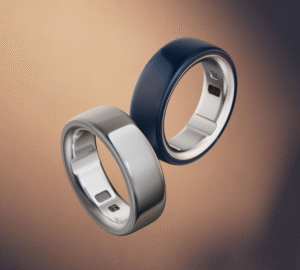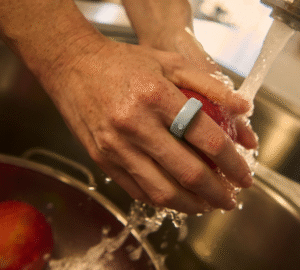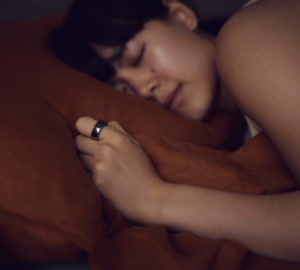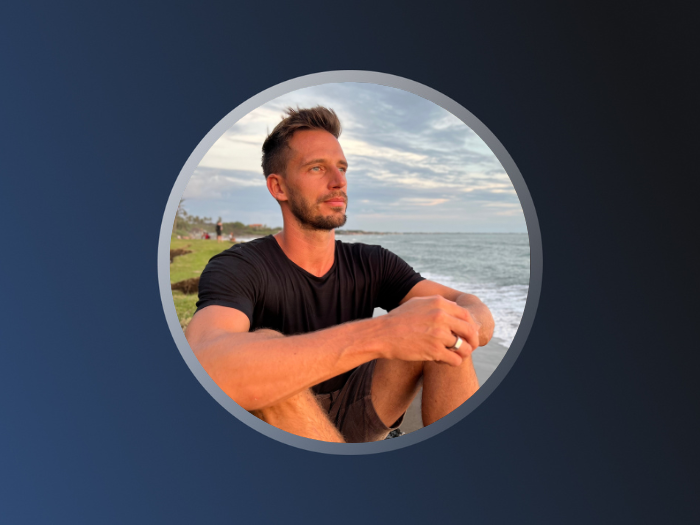Who: Lewis C., 34, IT engineer turned health coach, Bali
Surprising Oura insight: Lewis discovered that chronically poor sleep and lifestyle habits were contributing to his autoimmune disease flare-ups. Over time, he learned how to have a healthy and restorative relationship with sleep, which ultimately improved his life — and even influenced his career path.
What led you to Oura?
About three years ago, I started to develop a bunch of health issues affecting my skin, joints, and more. When I tried to get a diagnosis, everything came back inconclusive. I believe I have an autoimmune disease that affects my muscles and metabolism. I’ve been on this journey ever since trying to understand what’s wrong. While researching the different metrics you can use to determine your health, sleep rose to the top, which led me to sleep tracking and Oura.
How has Oura helped you address these issues?
Thanks to tools like Oura Ring, I got my sleep back on track, identified what was wrong, and began making the necessary lifestyle changes to heal. After two years, I was able to reverse the symptoms of my autoimmune disease. Now, three years later, I’ve resumed all of the activities that I love, like competing in Ironman Triathlons. The disease doesn’t hold me back anymore.
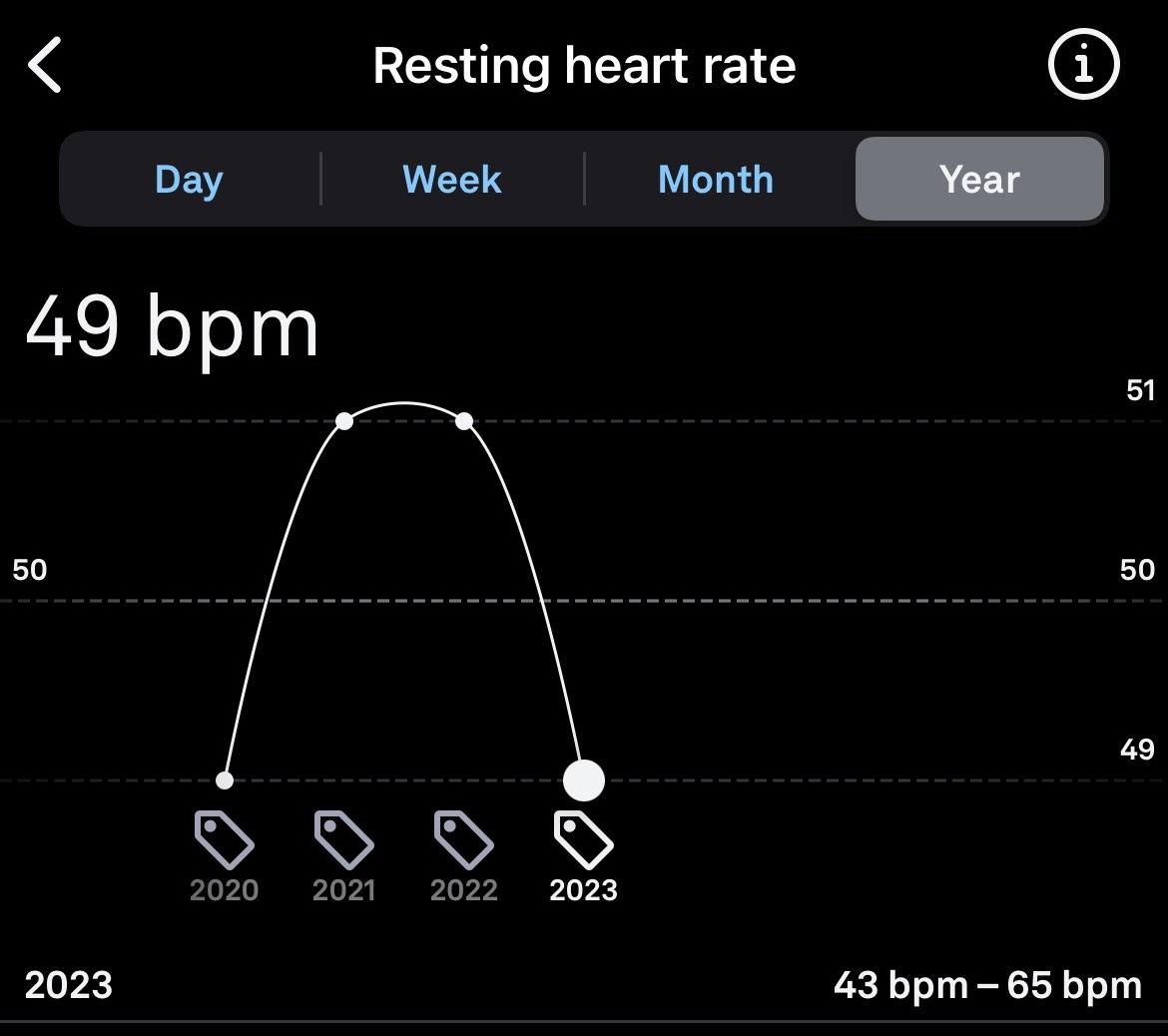 |
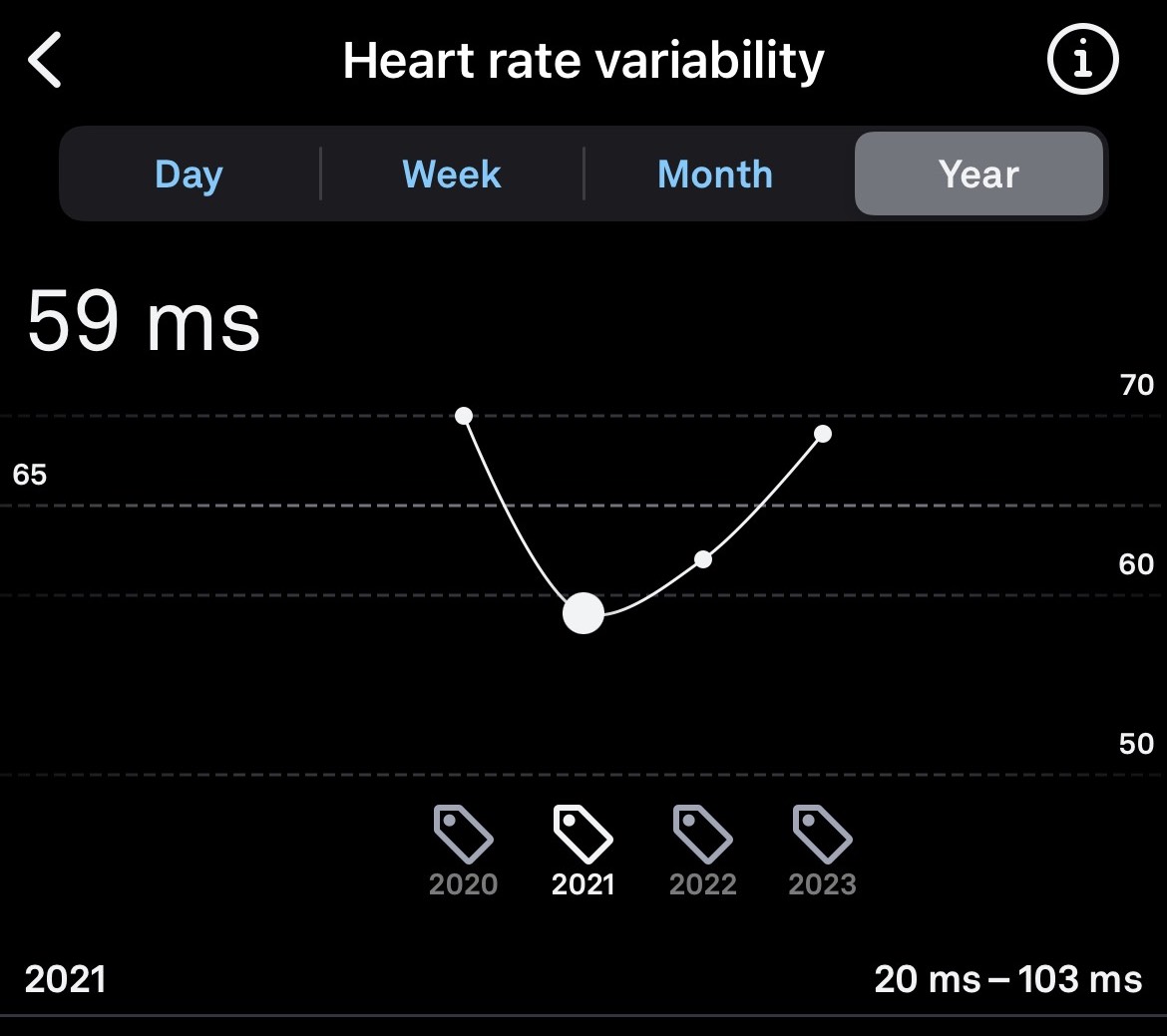 |
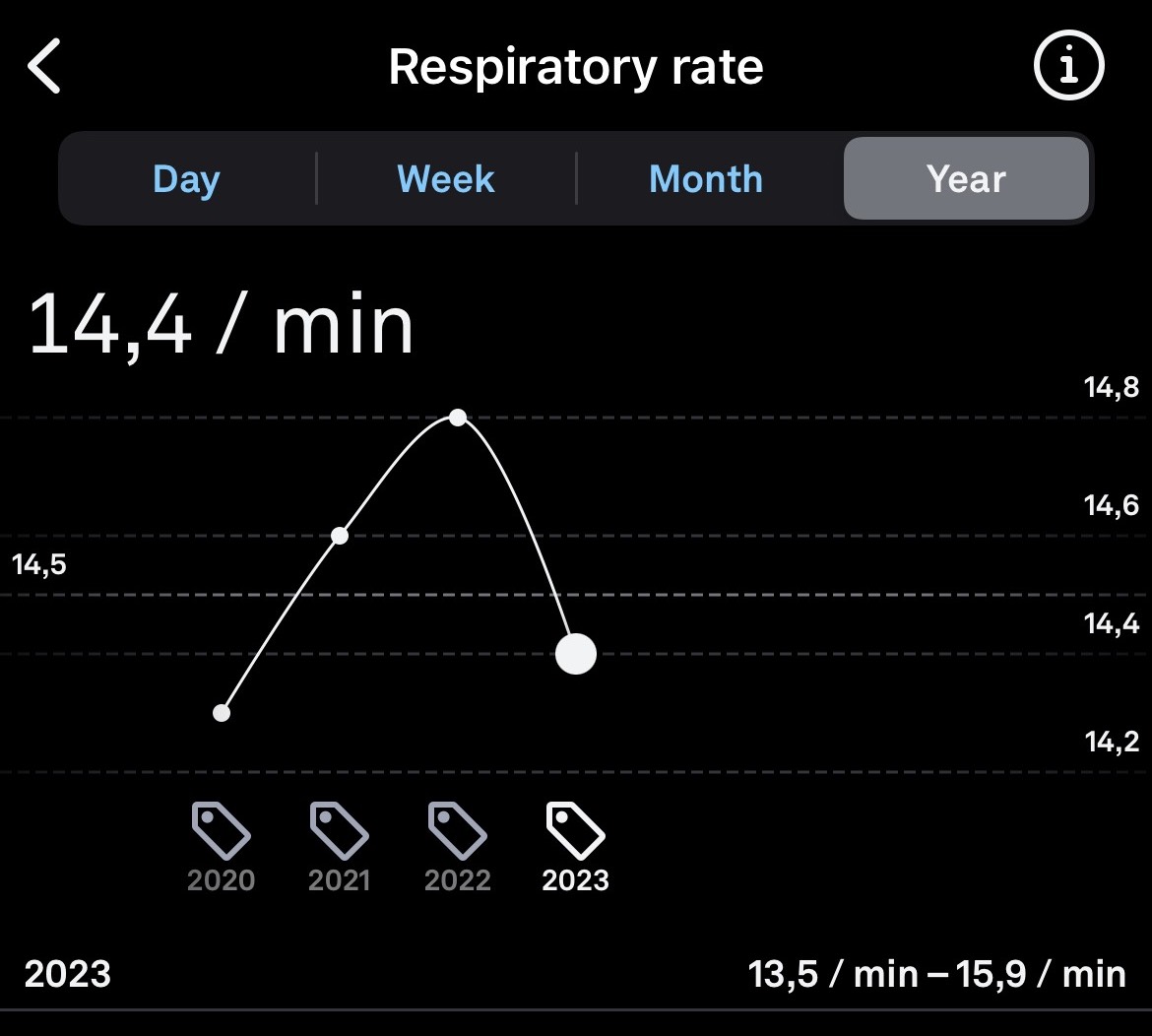 |
Lewis viewed his year-long Trends to track how his autoimmune symptoms affected metrics like his resting heart rate, HRV, and respiratory rate — and how his lifestyle changes improved them. Learn how to explore your Trends in the Oura App.
How did you organize all of your Oura data?
At first, I found my stats overwhelming. With Tags, it was easy to get out of my head, look back over time, and start building an overview to spot patterns.
I used Tags to track how exercise impacted my HRV, heart rate, and sleep stages. My HRV was very low in the beginning. When I would go cycling, my HRV the following two nights would be considerably higher. I learned that it was extremely good for my HRV to cycle gently, but if I did a hard workout, it would lower my HRV even more.
I realized the type, intensity, and timing of exercise all mattered. If I exercise in the evening, that more negatively impacts my HRV than if I exercise it in the morning. In the morning, I have time to relax and recover, and my HRV improves.
READ MORE: What Is HRV?
What lifestyle changes have you made since becoming an Oura member?
I’m now five weeks without alcohol, and it’s a constant intention of mine to keep reducing my consumption. I come from an environment in the UK where a lot of alcohol is consumed. But if sleep is your priority, then you just shouldn’t drink.
I also don’t eat or drink about four hours before bed, so I’m finished digesting everything and my body can wind down and prepare for sleep. My eating window is typically from 10 am or 11 am until 5 pm. The morning window is more for hydration. I have better mental clarity in the morning by not eating and it feels good to work out on an empty stomach to me.
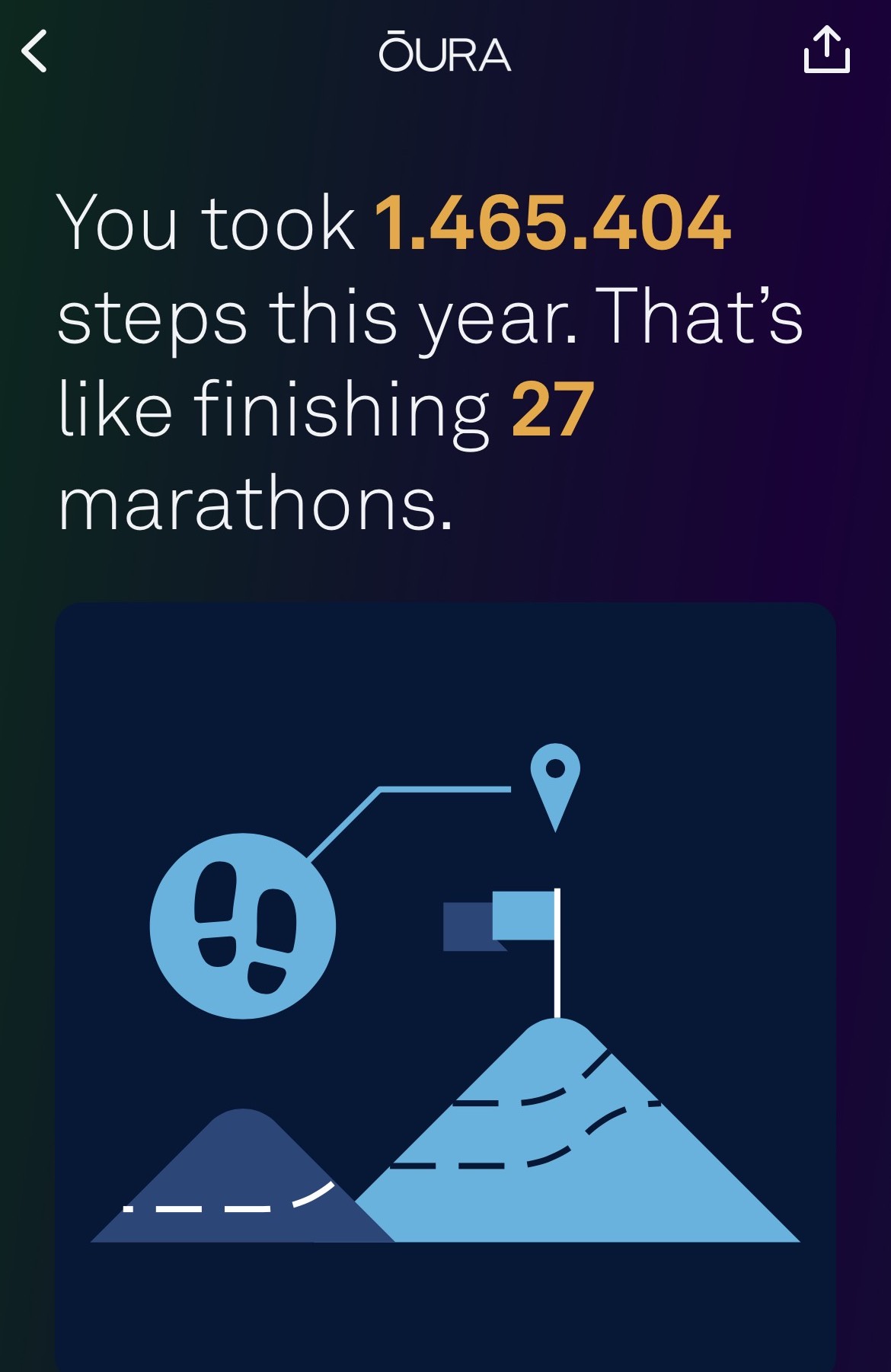 |
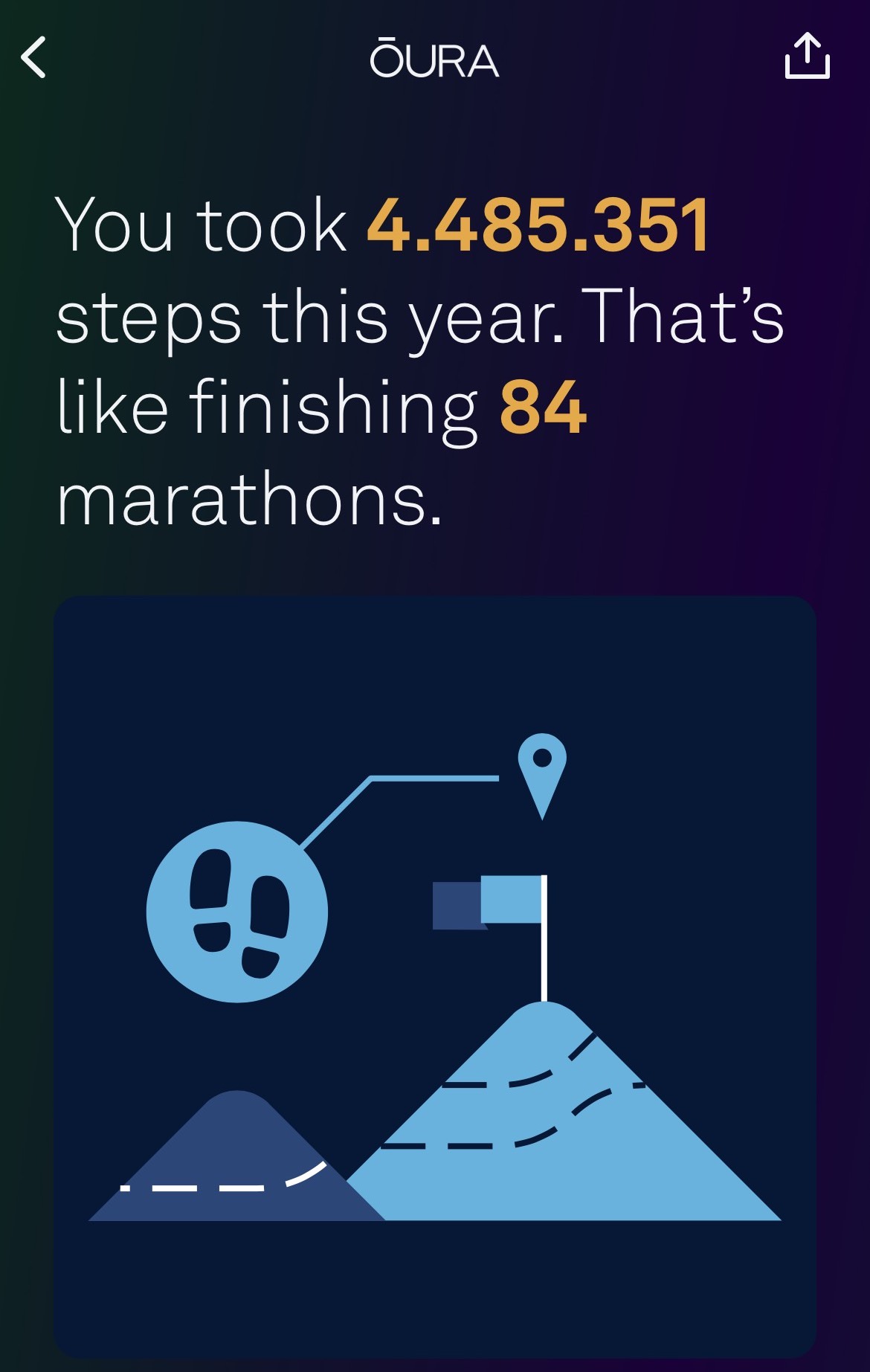 |
“On the left is my step count from when I was struggling; on the right is the year I reversed my autoimmune symptoms,” Lewis shares with Oura.
How did your health journey influence your career path?
I was an IT engineer, and before I got sick, I was actually building a supplements company. There are so many people out there struggling with their health. People are struggling, and there’s so much information out there that it’s overwhelming.
After years of learning what it takes to be truly healthy and thrive, I wanted to share that information to help as many people as possible. Being a health coach is absolutely my passion.
What message would you share with other Oura members?
It’s easy to feel defeated and think you’re just a poor sleeper, but you have more control over the quality of your sleep than you think. There are so many lifestyle changes you can make to improve your sleep.
Prioritize good sleep above all, remain consistent, and experiment. You’ll start to understand your physiology and the different levers you can pull. It’s not just about going to bed at the right time; it’s about what you eat, when you eat, and when you exercise. When you understand how these factors affect you, it’s empowering. Because for me, when my health is consistently good, life is so much easier.
What’s Your Oura Story?
Everyone’s story is unique, and we’d love to hear yours. Share your story here.







